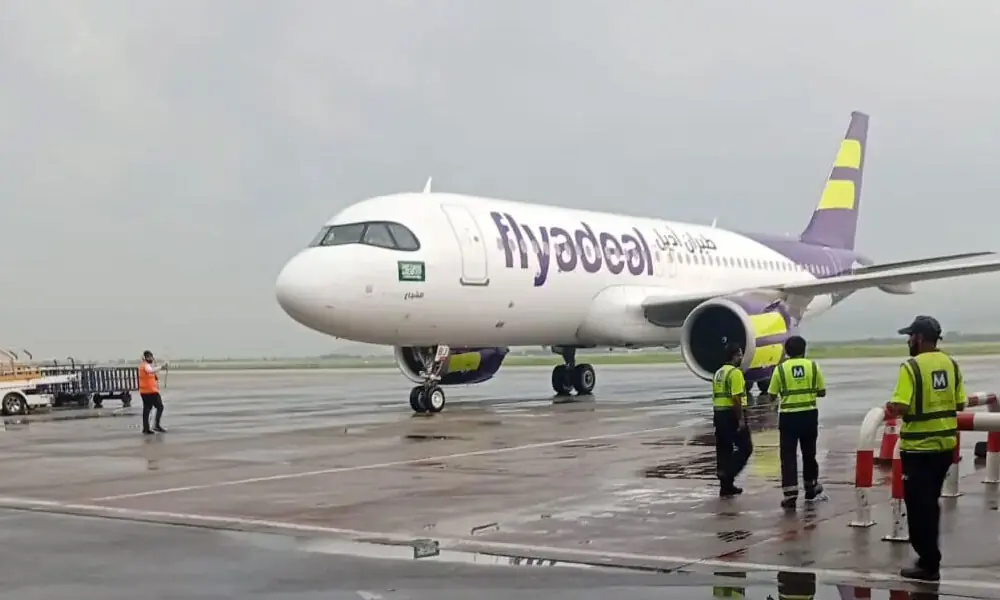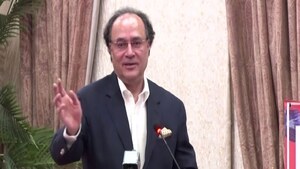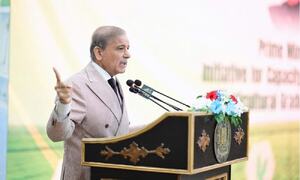Following Pakistani-American Faisal Shahzad's failed attempt to detonate a car bomb in the heart of New York city, American officials have started, once again, to pressure Pakistan to 'do more'. First, it was Secretary of State Hillary Clinton who told an interviewer last Friday that if a successful terrorist attack is traced back to Pakistan, the country will face "very severe" consequences.
Later on Sunday, Attorney General Eric Holder shook his finger at this country, saying if Pakistan does not take appropriate action against the Taliban, "we will." Were it not for the gravity of the issues involved, that would be a rather amusing claim, considering that the US has lost both the Iraq and Afghan wars. The last thing it needs is confrontation rather than co-operation with Pakistan.
Notably, though, some administration officials such as Secretary for Homeland Security Janet Napolitano and Cent COM chief General David Petraeus, have said they believed Faisal Shahzad was a 'lone wolf', who drew his inspiration from the Taliban, but had no formal links with them. This 'good cop, and bad cop' policy is aimed at showing to the American people that their government is doing as best as it can to ensure their safety. It is also meant to force Pakistan to start military operations in North Waziristan, and to strengthen the US' demand for carrying out 'special operations' on our soil.
In another interview with the CBS, Clinton said that the bomber had connections to the TTP, although she acknowledged there are questions that are still in the process of being sorted out. She went on to say "we cannot tolerate having people encouraged, directed, trained and sent from Pakistan to attack us." Indeed, her concern is understandable, but the tone and tenor of its expression shows utter disrespect for the immense suffering the people of this country have undergone because of the blowback from her country's war in Afghanistan. The number of those killed as a consequence of the war, that initially had nothing to do with Pakistan, is at least nine times higher than that of the 9/11 atrocity victims.
Fortunately, the car bomb in New York did not explode. Unfortunately for Pakistanis, countless bombs have gone off in various cities, killing thousands of people, in some instances, wiping out several members of the same family. As per the Inter-Service Public Relations figures, between 9/11 and February of this year, 30,452 people were killed or injured. Of these, 21,672 were civilians and 8,785 military men. It should be noted that 78 officers and 2,273 men were among our military dead, whereas the combined US and Nato troops casualties in Afghanistan for the same period stood at 1,582. We are still counting our dead.
And yet we are being bullied and warned of 'very severe consequences'. Somebody in Washington has also called for cutting off the assistance money. This only goes on to show the nature of relationship as viewed from Washington. It certainly is not a partnership against a common enemy, but between a client state and a big power. The former could be asked to do anything for a price. In other words, Washington's view of us is merely that of mercenaries.
Hence, among the various accusatory statements, has come the threat of cutting-off the assistance money, if Pakistan does not do as told. Of course, this line of thinking prefers to ignore the fact that the war is not exactly an incentive for people to invest in an economy. Pakistan's economy has suffered losses worth at least $40 billion on account of the war, which renders the sum of $7.5 billion assistance money, to be spread out over a five-year period, rather insignificant. We should have demanded and received reparations commensurate with the damage.
Reverting to Clinton's threat of consequences, it needs to be remembered that actions, as dictated by the laws of nature, have reactions. Also, old wisdom holds that violence begets violence. Washington needs to ponder the possibility that the failed bombing could be a consequence of what the US is doing in this part of the world. It is waging a war, and wars have violent consequences. They are about killing and getting killed. We in Pakistan face these consequences in greater severity because this country itself has been turned into a battlefield. People here face death and destruction almost every day.
Faisal Shahzad's case, without a doubt, is linked to Pakistan, more specifically to the troubled areas, where he comes from. It is not unusual for the US citizens to be affected by events in the countries of their origin. The Irish-Americans, for instance, regularly made large contributions to the cause of Irish Republican insurgency until President Bill Clinton, himself of Irish descent, helped broker a peace agreement between the Republicans and the British government.
This though is not a justification for what Faisal had set out to do. Such madness deserves to be condemned in strongest possible terms, and remedies found to prevent any recurrence. The first and foremost responsibility in this regard is that of the US government. It should tighten its homeland security to avert a similar horror in the future.
Things also need to be put in the proper perspective in order to deal with them effectively. A review is in order of the policy of indiscriminate drone strikes, which have killed a lot more innocent civilians than militants. Last year for example, drone attacks killed 708 people, only eight of them militants. Death on this scale of innocent people would be unthinkable in any Western country. The Pushtoon people who bear the brunt of the attacks may not have the power to prevent these wanton killings, but no one can stop them from getting angry, hate those doing it, and seek revenge, which is a strong tradition in the Pushtoon culture.
Reports suggest that the US wants to resort to incursions in addition to continuing drone strikes. This will be a recipe for disaster. It will undermine whatever is left of the public trust in the government and harm the military's ability to carry out necessary cleaning up operations.
For its part, Pakistan must do all it can to defeat the extremists for the sake of peace and security of its own people. The army should go into North Waziristan if that can help achieve the desired results. In case this requires negotiations with pliable elements in order to isolate the hardcore extremists, we should go for such a strategy. We must not launch an operation on the say-so of the Americans. Sooner or later, they will go home, and we will be left to deal with the consequences. Our government's primary consideration must be protecting the lives of its people. A society at peace with itself is the best bet for peace and security for all concerned.
saida_fazal@yahoo.com
BR100
15,100
Increased By
41.1 (0.27%)
BR30
43,391
Increased By
460 (1.07%)
KSE100
148,834
Increased By
18.5 (0.01%)
KSE30
45,186
Decreased By
-20.6 (-0.05%)





















Comments
Comments are closed.